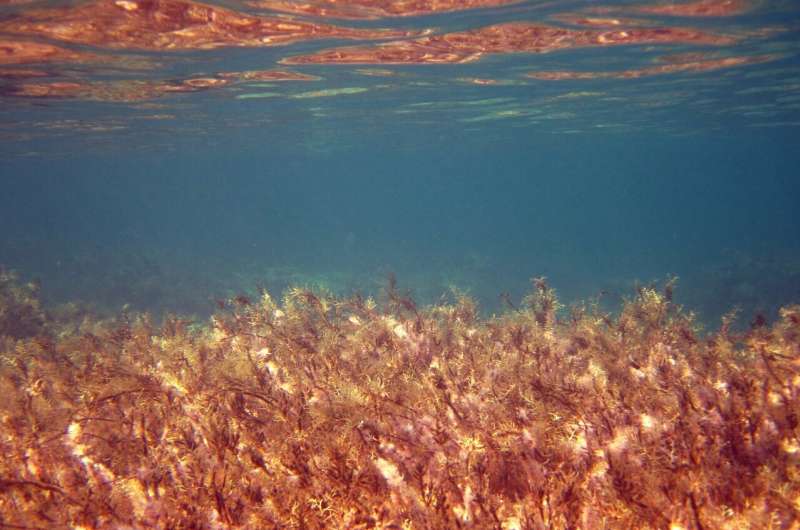New study reveals hidden impact of marine heatwaves

A new study by an international team of researchers including The University of Western Australia reveals the worst marine heatwave ever recorded off Western Australia was responsible for a massive loss of genetic diversity in underwater forests.
The study published in Current Biology found that between 30 and 65 percent of average genetic diversity was lost at sites along 800km of coastline.
One of the co-authors, Associate Professor Thomas Wernberg from UWA's Oceans Institute and School of Biological Sciences, said the results showed that marine heatwaves may compromise the ability of seaweed forests to respond to future climate change.
"Although the ecological impacts of extreme climatic events are often obvious and well documented, little is known about how these events impact underlying genetic diversity and adaptability," Associate Professor Wernberg said.
"We used rare genetic baseline data collected for a completely different purpose without any premonition there would be a marine heatwave to follow. This allowed us to detect genetic impacts for the first time."
Marine heatwaves are extreme warming events which occur in the ocean and are increasing in frequency globally with significant consequences for coastal marine species, communities and the ecosystem services they provide.
The research team focused on an unprecedented 2011 warming event that affected around 2,000km of Western Australian coastline.
Dr. Melinda Coleman, an ecological geneticist and adjunct researcher at UWA, said the researchers found between 30 and 65 percent of average genetic diversity was lost among underwater forests.
"Two seaweeds Sargassum fallax and Scytothalia dorycarpa were affected and 100 percent wiped out in some areas," Dr. Coleman said.
"Strikingly these impacts were cryptic and not reflected in measures of forest cover used to determine ecological impacts of the heatwave.
"This suggests we may have underestimated the true impacts of the heatwave event and the subsequent ability of populations to respond to future climate change."
More information: Carlos Frederico Deluqui Gurgel et al. Marine Heatwave Drives Cryptic Loss of Genetic Diversity in Underwater Forests, Current Biology (2020). DOI: 10.1016/j.cub.2020.01.051
Journal information: Current Biology
Provided by University of Western Australia


















